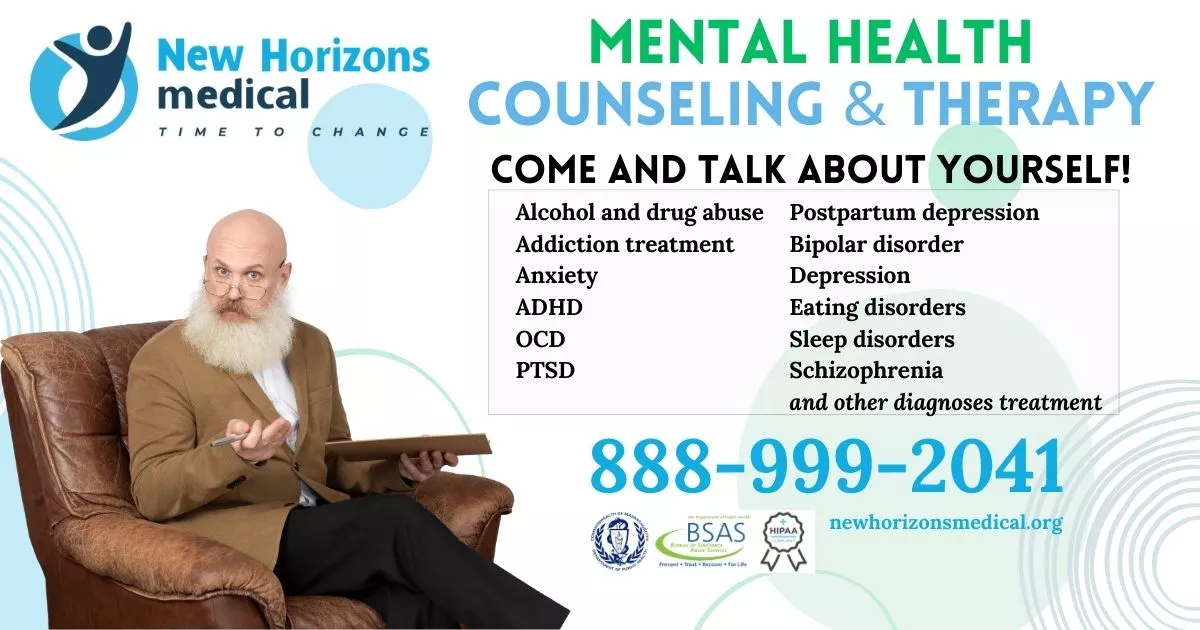Opening the Secrets of Mental Health And Wellness: A Review of Counseling and Therapy Options
Mental health and wellness is a complex and crucial element of general health. Numerous therapy and treatment alternatives exist to resolve numerous psychological difficulties. Each method offers special benefits and techniques customized to private requirements. Recognizing these choices is crucial for anybody looking for to improve their psychological health and wellness. Cognitive Behavioural Therapy. What aspects should one consider when exploring these opportunities? The response might disclose a path to a healthier emotion
Recognizing Mental Health and Its Value
Psychological wellness incorporates the psychological, emotional, and social well-being of people, considerably influencing just how they assume, really feel, and act. Its relevance can not be overemphasized, as it impacts every aspect of life, consisting of partnerships, work efficiency, and total lifestyle. People with great mental wellness often tend to deal with tension extra successfully, preserve much healthier connections, and make informed choices. On the other hand, bad mental wellness can result in psychological distress, impaired functioning, and various mental conditions, which may require expert intervention. Recognizing mental health and wellness is essential for acknowledging the indications of distress and the need for assistance. Awareness additionally advertises empathy and lowers stigma, motivating individuals to look for help when required. By focusing on mental health and wellness, communities can promote environments that sustain psychological health, ultimately leading to healthier, a lot more resilient people. This structure acts as a vital action towards effective psychological wellness counseling and therapy options.
Sorts Of Therapy Methods
Counseling strategies vary commonly, each tailored to fulfill the unique demands of people looking for support. Among one of the most usual types are cognitive-behavioral therapy (CBT), which concentrates on determining and altering adverse thought patterns, and person-centered treatment, which stresses compassion and approval. Psychodynamic treatment discovers unconscious procedures and previous experiences to comprehend current behavior, while solution-focused short treatment intends to recognize solutions rather than explore problems.Additionally, household therapy addresses relational dynamics and interaction within households, promoting much healthier communications. Team therapy gives a public area for individuals to share experiences and support each other. Other approaches include existential treatment, which encourages individuals to locate definition and purpose, and art or music treatment, which utilizes innovative expression as a restorative device. Each method supplies distinct strategies and philosophies, enabling customers to find one of the most ideal technique for their personal development and healing journeys.
Discovering Different Therapy Methods
In the domain of psychological health therapy, different therapy methods use distinctive approaches to treatment. Cognitive Behavior modification stresses the link in between thoughts and behaviors, while Psychodynamic Therapy explores subconscious influences on psychological wellness. In Addition, Mindfulness-Based Methods promote present-moment recognition as a way to improve emotional guideline and general psychological health and wellness.
Cognitive Behavior Modification
Cognitive Behavior Modification (CBT) attracts attention as one of the most extensively practiced and looked into modalities in psychological health and wellness therapy. This method concentrates on the interconnection between ideas, feelings, and habits, emphasizing that modifying unfavorable thought patterns can result in boosted psychological well-being and behavioral changes. CBT is structured, commonly entailing a minimal number of sessions, and aims to gear up people with useful abilities to manage their symptoms. It is effective for a variety of conditions, including anxiousness problems, depression, and post-traumatic tension condition. By using techniques such as cognitive restructuring and direct exposure therapy, CBT cultivates strength and equips clients to face obstacles head-on, making it a valuable alternative in the landscape of psychological wellness therapies.
Psychodynamic Treatment Techniques
Psychodynamic therapy methods use a deep expedition of the subconscious mind and its impact on habits and psychological well-being. Rooted in Freudian concept, these techniques stress the significance of very early childhood experiences and subconscious problems. Through methods such as complimentary association, desire analysis, and transference, people obtain insight into their feelings and ideas, promoting self-awareness and understanding. This healing modality encourages customers to reveal repressed emotions and unsettled problems, which can be essential in resolving present emotional obstacles. By checking out the interaction between past experiences and existing habits, psychodynamic therapy intends to promote emotional recovery and individual development. Inevitably, it provides a framework for people to explore complicated inner characteristics that affect their mental wellness.

Mindfulness-Based Techniques
While conventional treatments typically concentrate on previous experiences, mindfulness-based strategies prioritize present-moment understanding as a path to psychological wellness. These approaches, including mindfulness-based cognitive treatment (MBCT) and mindfulness-based tension reduction (MBSR), motivate people to involve completely with their thoughts and feelings without judgment. Specialists learn to observe their mental states, fostering a better understanding of emotional triggers and actions. This practice not only eases signs of anxiousness and clinical depression but additionally enhances general mental resilience. By integrating mindfulness exercises, such as meditation and deep breathing, customers grow a sense of tranquility and quality. Eventually, mindfulness-based strategies empower individuals to navigate life's obstacles with raised understanding and approval, advertising a healthier relationship with their thoughts and emotions.
The Role of a Specialist or Therapist
A proficient specialist or counselor plays an essential duty in sustaining people through their psychological wellness journeys. They supply a safe, non-judgmental area where clients can reveal their thoughts and sensations openly. Cognitive Behavioural Therapy. By employing various healing methods tailored per person's demands, therapists aid customers check out underlying issues that might add to their psychological health and wellness challenges.Therapists provide assistance and tools to deal with stress and anxiety, anxiety, anxiety, and other emotional troubles. Their training outfits them to acknowledge patterns in habits and assumed processes, assisting in insights that cause personal development. They also promote a strong therapeutic alliance, which is important for effective outcomes.Moreover, specialists remain dedicated to confidentiality and honest standards, guaranteeing a trusting setting. Inevitably, the duty of a therapist or therapist is to equip individuals, motivating them to develop resilience and much healthier coping approaches while steering with life's intricacies
Just how to Select the Right Counseling or Treatment Option
Choosing the right therapy or therapy choice begins with reviewing individual requirements. It is crucial other to understand individual obstacles and objectives before exploring different therapy styles. This foundational step can substantially affect the performance of the selected technique.
Examine Your Demands

Exactly how can people effectively assess their mental health requires when examining counseling or therapy alternatives? First, they should mirror on their emotion and identify details issues, such as depression, anxiety, or relationship difficulties. Journaling can be a beneficial device for tracking thoughts and sensations with time. Furthermore, individuals might take advantage of looking for feedback from trusted good friends or member of the family pertaining to regarded changes in behavior or mood. It is additionally handy to assess individual objectives for therapy, such as improving coping skills or obtaining understanding right into personal patterns. Investigating various therapy modalities and their suitability for particular requirements can aid in making an educated option. Inevitably, self-awareness plays a pivotal function in choosing the ideal course for psychological wellness support.
Explore Therapy Styles
While traversing the diverse landscape of treatment choices, people need to take into consideration numerous designs of counseling to find the very best fit for their one-of-a-kind demands. Cognitive Behavior Modification (CBT) focuses on transforming adverse idea patterns, while Psychodynamic Therapy explores previous experiences and subconscious procedures. Humanistic techniques emphasize individual development and self-actualization, fostering an encouraging setting. In addition, mindfulness-based treatments grow present-moment awareness, assisting emotional guideline. For those looking for structure, Solution-Focused Brief Therapy targets details objectives and solutions. Team therapy provides a common setup for shared experiences and support. Eventually, individuals should reflect on their preferences, comfort degrees, and particular challenges, guaranteeing they select a therapeutic design that resonates with their personal trip towards psychological health.
Getting Over Barriers to Seeking Aid

The Advantages of Counseling and Therapy for Mental Wellness
Seeking aid for psychological health and wellness obstacles can result in significant improvements in total wellness. Therapy and therapy supply individuals with a safe room to discover their feelings and thoughts, cultivating self-awareness and individual development. These expert services equip customers with dealing techniques and problem-solving skills customized to their special situations.Moreover, therapy can decrease signs and symptoms of anxiousness, clinical depression, and various other mental wellness disorders, enhancing psychological durability. Routine sessions advertise accountability and urge individuals to establish and achieve individual goals. Via different restorative techniques, such as cognitive-behavioral treatment or mindfulness practices, customers learn to reframe unfavorable thoughts and establish much healthier behaviors.Additionally, the healing relationship itself can be a source of support, assisting to combat seclusion and loneliness. Overall, participating in counseling and therapy is an aggressive action towards achieving psychological health, making it possible for people to lead more meeting lives.
Frequently Asked Inquiries
For How Long Does Counseling or Treatment Typically Last?
The period of therapy or therapy differs significantly, often lasting from a couple of sessions to numerous months or years. Elements affecting this include the person's certain demands, the kind of treatment, and healing goals.
What Should I Expect Throughout My Very First Session?
During the initial session, people can expect an intro, discussion of concerns, and the specialist's method. They might complete evaluations and develop objectives, cultivating a risk-free environment for open interaction and structure connection.

Are There Any Dangers Related To Therapy?
Treatment can entail threats, such as psychological pain, susceptability, or confronting unpleasant memories. While these obstacles might occur, they can also bring about individual development and healing, making the therapeutic procedure complicated yet potentially fulfilling.
How Can I Tell if My Specialist Is an Excellent Fit?
Determining if a therapist is a great fit includes evaluating comfort, interaction design, and restorative method. Positive connection and development in the direction of objectives are indicators of an ideal suit, important for efficient psychological health and wellness assistance.
Will My Insurance Cover Therapy or Therapy Procedure?
Figuring out insurance coverage for therapy or therapy sessions usually needs contacting the insurance provider directly. Plans vary considerably, so people should verify advantages, co-pays, and any type of essential pre-approvals before going after treatment solutions. Among the most typical types are cognitive-behavioral treatment (CBT), which concentrates on identifying and altering adverse thought patterns, and person-centered therapy, which stresses empathy and acceptance. Psychodynamic therapy explores subconscious procedures and previous experiences to comprehend existing habits, while solution-focused quick therapy intends to identify services instead than examine problems.Additionally, family members treatment addresses relational dynamics and communication within households, promoting healthier interactions. Other approaches consist of existential therapy, which motivates individuals to discover definition and objective, and art or songs therapy, which uses innovative expression as a restorative tool. Cognitive Behavior Treatment highlights the connection between behaviors and thoughts, while Psychodynamic Therapy discovers subconscious impacts on psychological health. Cognitive Behavior Treatment (CBT) concentrates on transforming adverse idea patterns, while Psychodynamic Treatment checks out unconscious processes and previous experiences.